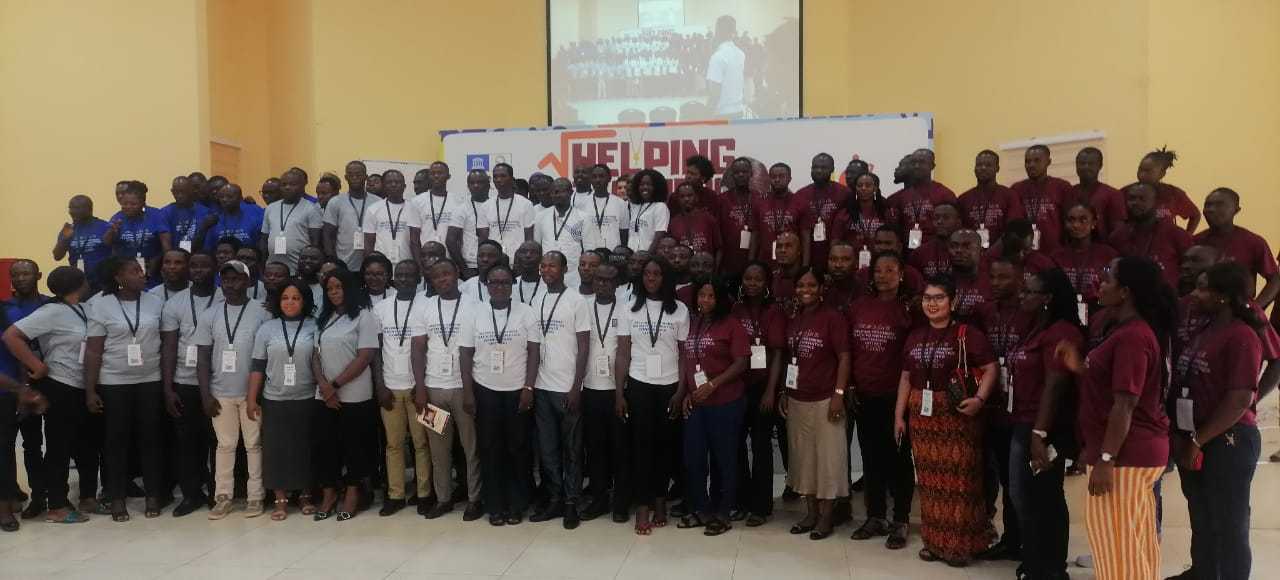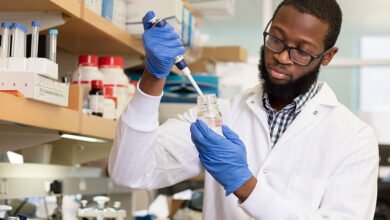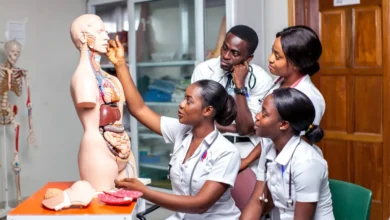More than 450 maths teachers throughout Africa receive training from AIMS Ghana.

More than 450 maths teachers throughout Africa receive training from AIMS Ghana.
More than 450 teachers have received mathematical science training from the African Institute for Mathematical Sciences (AIMS) in Ghana.
As a UNESCO Category II Centre of Excellence, AIMS Ghana’s goal is to train and develop high school teachers throughout Africa in the mathematical sciences.
The University of Waterloo’s Centre for Education Mathematics and Computing (CEMC) and AIMS Ghana collaborate to host the biennial “Helping Teachers Teach Mathematics Conference HTTMC.”
The conference’s main objective was to give African educators the chance to learn more about teaching mathematics using the fundamentals of the country’s basic high school curricula. It also seeks to present fresh approaches to teaching and using contemporary mathematics.
In addition to providing math teachers with a chance to network and exchange ideas, this hybrid online and in-person conference drew in highly experienced mathematicians who served as resource people, instructors, and consultants.
Comfort Mintah, a lecturer at the University of Waterloo and the Centre for Education, Mathematics, and Computing, thinks that teachers will learn new teaching methods to hone their craft.
“We don’t see ourselves teaching more theoretically in the classroom, thus the goal of this conference is to help us understand how to teach most of the mathematical topics in a more applied way. Instead of going into the classroom and telling the instructors to solve quadratic or linear systems of equations, we will attempt to formulate a question that will allow the students to think critically and apply the idea of linear systems of equations to the problem.

Numerous pupils in Ghana exhibit a fear of mathematics, as noted by Ms. Mintah: “Our teachers’ methods of instruction are crucial in addressing this issue.”
Children get scared if they are taught in a terrifying manner, such as in the past when we practiced “mental maths” and punished them for not doing well. However, if you make the material more enjoyable and include more problem visualization, people are more likely to enjoy the course. She emphasized.
delivering a talk titled “Understanding Mathematics: Going Back to the Why”? Rich Dlin, a professor at the University of Waterloo, added that there is a revolution taking place in mathematics education, moving away from the inflexible approach https://3news.com/news/education/aims-ghana-trains-over-450-mathematics-teachers-across-africa/to the subject.
“Mathematics is essentially about addressing problems for the future. Many of my friends would tell you that even while we can’t predict what problems we will face in the future, we do know that problems will arise. Therefore, we are attempting to abandon the more flexible approach to mathematics that encourages creativity in problem-solving and makes use of the intellectual capacity of mathematics in the classroom.
“Exploring ideas to help students talk about mathematics in class; destroying the phobia for mathematics through innovative communication of the subject and shaping up using the concrete diagrammatic symbolic continuum in geometry” was one of the themes covered by other speakers.








